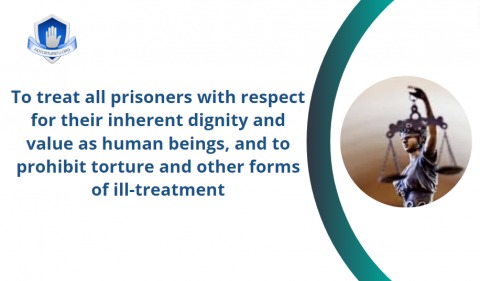Freedom from Torture
Civil Society Coalition against Torture and impunity in Tajikistan

Protecting the rights of prisoners has never been easy. The Universal Declaration of Human Rights of 1948 did not specifically refer to prisoners, although the rights it laid out—including the prohibition of torture, the right to a fair trial and the presumption of innocence—implicitly covered them. Seven years later, in 1955, the First United Nations Congress on the Prevention of Crime and the Treatment of Offenders adopted the Standard Minimum Rules for the Treatment of Prisoners. This was an important start, and in 2015, the United Nations General Assembly adopted expanded rules, known as the “Nelson Mandela Rules”, in honour of arguably the most celebrated prisoner of the twentieth century. The Rules are based on an obligation to treat all prisoners with respect for their inherent dignity and value as human beings, and to prohibit torture and other forms of ill-treatment.
The United Nations Office on Drugs and Crime (UNODC) was the agency leading the revision process. The United Nations Office of the High Commissioner for Human Rights (OHCHR) ensured that the revised rules reflected international human rights standards adopted since the 1950s. As a result, the Mandela Rules provide States with detailed guidelines for protecting the rights of persons deprived of their liberty, from pre-trial detainees to sentenced prisoners.
The Rules are based on an obligation to treat all prisoners with respect for their inherent dignity and value as human beings, and to prohibit torture and other forms of ill-treatment. They offer detailed guidance on a wide variety of issues ranging from disciplinary measures to medical services. For example, they prohibit the reduction of a prisoner’s food or water, as well as the use of instruments of restraint that are inherently degrading or painful, such as chains or irons.
Source: https://www.un.org/en/un-chronicle/nelson-mandela-rules-protecting-rights-persons-deprived-liberty